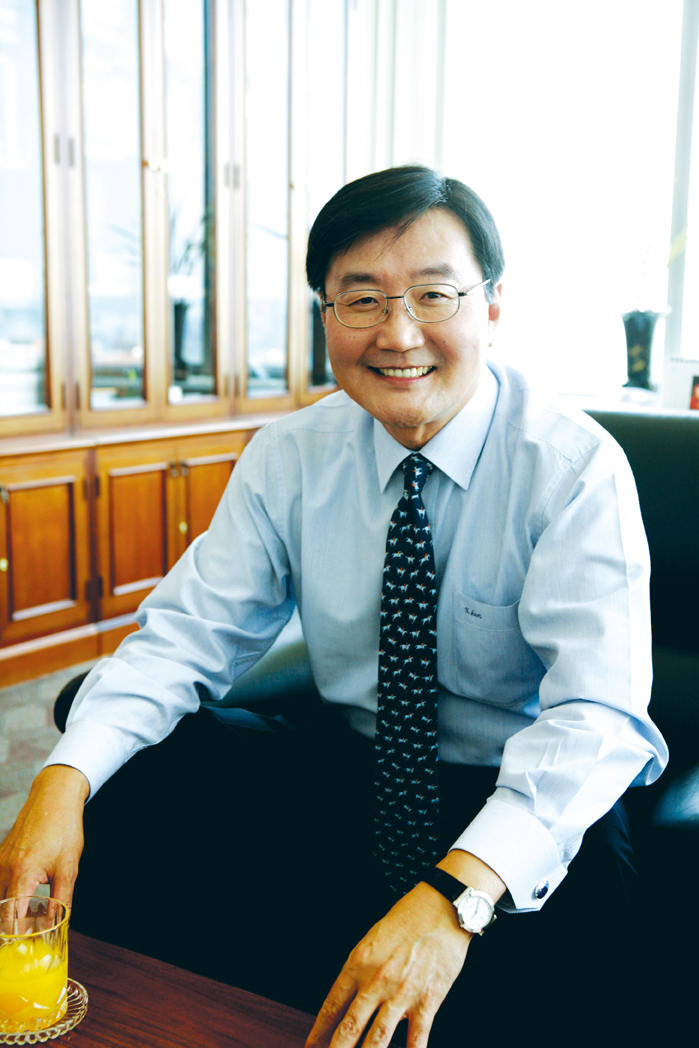Stressing Fairness, Transparency
Chmn. Jun says National Pension Service should not lose public trust with politically-motivated meddling

Chairman Jun Kwang-woo of the National Pension Service (NPS) said the autonomous rights and independence of NPS management should be respected when it exercises its management and shareholder rights.
The chairman made the remarks on the reform of conglomerates through the exercising of NPS's shareholder rights, which have been talked about in political circles. Jun said the management of NPS should not be subjected to any political influences from the government and politics by stressing that it would undermine the public trust and the investment value of NPS.
In an interview with a local daily, Jun said NPS bought additional shares of affiliates of four major business groups in Korea because their share prices were down due to the European debt crisis, but not because of political purposes, and in a bid to increase holdings of financially-strong firms for the long term.
The top manager of NPS said he would take measures to make the shareholder rights of NPS stronger in order to continuously boost the market values of its invested companies and at the same time protect the assets of NPS, which belong to the public.
Jun said NPS only objected in 7 percent of cases up for shareholder vote among its invested firms last year, compared to 8 percent in 2010, but much higher than the 5.4 percent in 2008, and 6.6 percent in 2009, showing that the figure has been rising, although not by much. The figure is much higher than the 1 percent on average by individual investors.
The NPS CEO said the low figure doesn't mean that investors care less about the issues under consideration at shareholders meetings. On many occasions, the company management discusses the issues with shareholders before the shareholders meetings are held.
Jun said no political factors went into NPS decisions to make investments in certain firms or votes taken at shareholders meetings in which NPS participated. The autonomy of NPS management is needed to maintain its high level of public trust and to smoothly execute its investment strategy in the international financial markets.
"If politics interferes with our overseas investments, the overseas markets might see NPS investments as politically oriented and, therefore, should be avoided, resulting in the reduction in the number of foreign firms or real estate that NPS can invest in or buy," Jun said.
For example, when NPS was trying to invest in Gatwick airport in Britain in 2010, the deal had to overcome some difficulty as a number of foreign media reported that NPS investments were politically motivated.
"We had to persuade them that NPS was on its own when making investment decisions,"Jun said.
The business community is concerned that political factors may interfere with NPS's execution of its shareholder rights. Jun said as far as he knows the corporate social responsibility and responsible management are for the sustainable growth of the companies and are not meant to weaken their competitive strength. The shareholders execution of their rights could impair the operations of the companies, although they have some positive advantages, which is why they have to be fair and transparent when they are executed.
Asked if he wants to send outside directors to NPS-invested companies to strengthen shareholder rights, Jun said NPS should be more serious about the matter, meaning that they should not create unnecessary suspicion and misunderstanding of NPS's moves at this point. nw
Chairman Jun Kwang-woo of National Pension Service.
A general view of the Naitonal Pension Service headquarters in Seoul.
3Fl, 292-47, Shindang 6-dong, Chung-gu, Seoul, Korea 100-456
Tel : 82-2-2235-6114 / Fax : 82-2-2235-0799